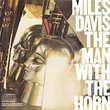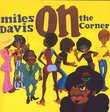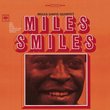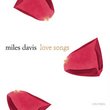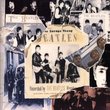| All Artists: Miles Davis Title: Aura Members Wishing: 2 Total Copies: 0 Label: Sony Release Date: 9/12/1989 Genres: Jazz, Pop Styles: Jazz Fusion, Swing Jazz Number of Discs: 1 SwapaCD Credits: 1 UPC: 074644533224 |
Search - Miles Davis :: Aura
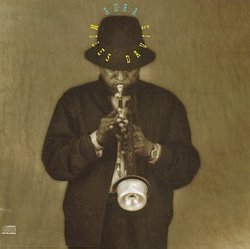 | Miles Davis Aura Genres: Jazz, Pop
Japanese 24bit mastered reissue of the late jazz icon's 1989 album. Packaged in a limited edition miniature LP sleeve for the first pressing. 2001 release. |
Larger Image |
CD DetailsSynopsis
Album Description Japanese 24bit mastered reissue of the late jazz icon's 1989 album. Packaged in a limited edition miniature LP sleeve for the first pressing. 2001 release. Similar CDs
Similarly Requested CDs
|
CD ReviewsAdding Decoration to a Rainbow Felix Schultz | Canton, Ohio United States | 02/05/2005 (5 out of 5 stars) "Aura was composed by Palle Mikkelborg who was also the producer. If one is familiar with Miles Davis' work, one will see that the stages of color from white to purple relate to the stages of Miles' career, from BeBop to Cool to Orchestra to post-Bebop to modal then electric, with the blues always remembered. The music chosen by Miles Davis to play over Palle Mikkelborg's orchestration is all imporvised, and meant to fit the portion of the era being protrayed. ( Miles even was heard to say that Palle knew more about the history of Miles Davis's music than he did. And it shows.) The music is not easy to get into, it takes time to absorb. It isn't like a four or five minute set of standards. It's a complete concept, a tribute to Miles Davis and his music. The presence of John McLaughlin adds to the flavor of a retrospective and reminds us that this is a record looking back, performed by musicians of the present--or the present when it was performed. Miles made artistic decisions on the record, it wasn't all a work scored that Miles would simply play on. In the manner of Gil Evans, Mikkelborg wrote out the music for the orchestra but left Miles to improvise the lead. One song has no Miles Davis trumpet on it, Indigo, because Miles said the record was full enough without his trumpet in it. That shows artistic integrity. And he was right. The record is different from his usual trumpet redordings because he is fronting a huge orchestra. The Danish studio orchestra of Copenhagen was playing the score, and there wasn't the same sort of playing as one does with a small band. The orchestra uses all the tricks ever used in a Miles Davis record, from horn to synthesizers to electric bass. The ethereal sound of much of the record helps to emphasize the trumpet solos that Miles does in the space left open for them. Each cut of the recording is strong enough to stand on its own. The complete piece of music is a masterpiece of musical engineering. It is not a piece that can be listened to as a backgound to housework or reading. It must be actually listened to and experienced. It is worthy of the five stars I have given it." Hit & Miss doren garcia | Los Angeles | 06/14/1999 (5 out of 5 stars) "Been a Miles fan for years and I appreciate all periods. The last period is Miles weakest in some ways. Most albums in the last period have some brilliant stuff, after all it is Miles. This one is spotty. Some great stuff but a lot of searching without finding. At least Miles continued to search unlike some of the moldy old figs out there." Quite good 02/17/2000 (4 out of 5 stars) "This is not one of Miles' greatest albums, but it is a quality work. Miles plays really well, for the last time in his recorded career--all albums after this one had markedly worse playing by him. The compositions are interesting and there is an attempt to create artistic statements, which is also lacking in all of the albums after this one. Not all of the music works completely, but the failures on this album are those of an artist straining to achieve art, not the failures of later Miles albums which are the failures of a cynic who has abandoned any pretense at creating art. This album is often compelling and enjoyable to listen to, and in historic context, is the last gasp of Miles' career."
|

 Track Listings (10) - Disc #1
Track Listings (10) - Disc #1